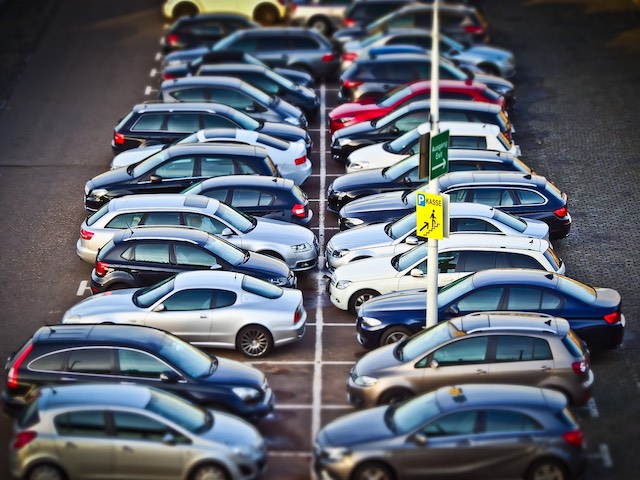“Parking ruined everything,” says self-described urbanist blowhard Dante Ramos in The Atlantic. Apparently, parking is the reason why housing is so expensive, your favorite architectural styles are no longer being built, and why your favorite delicatessen was torn down last year.
All of that is hogwash, of course, but since Ramos is singing to the choir, he doesn’t even try to prove any of these assertions. Instead, the article is filled with ridiculous comparisons, such as, “In a typical year, the country builds more three-car garages than one-bedroom apartments.” Yes, that’s because the demand for family homes is a lot higher than the demand for one-bedroom apartments.
Ramos adds that a parking spot “requires more than 300 square feet — about two-thirds the size of a typical new studio apartment.” Actually, the average square feet in a studio apartment was 573 square feet in 2008. The average size of new studios has been shrinking (thanks to stupid land-use laws) but it is still way more than 450 square feet. Besides, who wants to live in a 450-square-foot apartment?
The thing that Ramos wants you to forget is that this country is huge. We have a lot of land, only about 3 percent of which is devoted to cities, suburbs, and towns. So long as planners haven’t created artificial land shortages, land is cheap, so we can easily afford to devote however much we need to parking.
And there is every reason why we should do that. Automobiles have made us the most mobile people on earth by far. The average American travels more miles a year by car than the average resident of any other country travels by car, rail, bus, plane, boat, bicycle, and on foot put together.
That mobility helped make us rich. When planners aren’t trying to reduce our mobility with anti-auto policies (whose effects fall hardest on the poor), that mobility helps reduce income inequality by giving us access to better housing, higher paying jobs, and lower-cost consumer goods.
Ramos then goes into a diatribe against minimum-parking requirements. While it is possible that some cities went overboard on minimum-parking requirements, the problem is that planners want to turn it around and have maximum-parking requirements, which makes properties unmarketable.
Go to unincorporated parts of suburban Houston or Dallas, where counties aren’t allowed to zone much less impose minimum parking requirements. Do housing, retail, and commercial developers save money by leaving parking out of their designs? Of course not. “Parking drives retail,” one developer told me. Without parking, no one would buy or lease the buildings such developers construct.
Minimum-parking requirements are mainly an issue in cities that are already developed. The goal of such requirements is to keep streets from becoming congested with people looking for place to park. Planners today think that, by eliminating parking, they can get people to ride transit or walk rather than drive. Instead, in many cases, all they do is force people to move their homes or businesses to places where they can park.
Contrary to Ramos’ claims, parking is cheap and it doesn’t really hurt anything. But The Atlantic and other anti-auto publications have to keep beating this dead horse to keep people agitated about the evils of automobiles.









Other than the ideological zealotry of this, I suspect there is an economic interest as well. Recently I have noticed there are a couple of companies who for a fee will rent out your driveway or garage for you. See, https://www.neighbor.com/host/rent-my-parking-space Much like other planning schemes there is someone who will obviously benefit from this policy. Granted there are some situations already where such parking sharing companies might make sense but obviously creating artificial shortages of parking will only drive demand for their services.